VITAMIN D3 K2 4000IU CAPSULES
VITAMIN D3 K2 4000IU CAPSULES
 For Daily Energy, Focus & Drive
For Daily Energy, Focus & Drive
 Combat Stress, Fatigue & Brain Fog
Combat Stress, Fatigue & Brain Fog
 Made in the UK with 20,000+ Happy Customers
Made in the UK with 20,000+ Happy Customers
Due to our Winter Sale, we only have a few left in stock! Choose your package below!
Couldn't load pickup availability
Less than 1% of customers claim our Money Back Guarantee
Description
Description
High-Strength Vitamin D3 + K2 – Your Daily Dose of Vitality
Vitamin D is an essential nutrient, yet many adults in the UK may not get enough from sunlight alone—especially during the darker months. Enclar Health’s Vitamin D3 + K2 capsules offer a convenient way to supplement your diet with two important fat-soluble vitamins in a single daily dose.
Our carefully formulated blend combines Vitamin D3 (cholecalciferol) with K2 (as MK-7), alongside MCT coconut oil to support absorption. Each capsule is designed for ease of use, making it simple to incorporate into your wellness routine.
Why Choose Enclar Health’s D3 + K2?
- Dual Vitamin Formula – Combines Vitamin D3 and K2 in a complementary blend.
- MCT Coconut Oil for Absorption – A premium carrier oil that improves absorption for maximum effectiveness.
- Made for Everyday Convenience – Small, easy-to-swallow capsules in a three-month supply.
- Quality Assured – Manufactured in the UK in ISO & GMP-certified facilities.
- No Unwanted Additives – Free from soy, dairy, gluten, preservatives, and artificial flavors.
Why Enclar Health?
Why Enclar Health?
Third-Party Tested – Independently tested by an accredited laboratory to ensure quality and purity.
Research-Backed Ingredients – Formulated with well-studied natural ingredients, supported by science.
Made in the UK – Manufactured locally to the highest production standards.
100-Day Guarantee – Try it and love it, or get your money back — no questions asked.
Our Premium Quality Formula
Our Premium Quality Formula
Expertly Developed with Pharmacist Insight
Our Vitamin D3 K2 capsules are produced in the UK to ISO & GMP-certified standards — ensuring consistently high quality.
Each easy-to-take capsule features a carefully selected blend of D3 and K2 (MK-7), suspended in MCT coconut oil — a formulation approach chosen for its compatibility with fat-soluble vitamins.
Shipping Info
Shipping Info
We Offer FREE shipping on all orders over £30.
Delivery takes 1-3 days.
Directions
Directions
Take 1 capsule daily with a glass of water.
Returns
Returns
We have a 100-day return policy, which means you have 100 days after receiving your item to request a return
To be eligible for a return, your item must be in the same condition that you received it, unopened & unused, and in its original packaging. You'll also need the receipt or proof of purchase.
To start a return, you can contact us at support@enclar.com

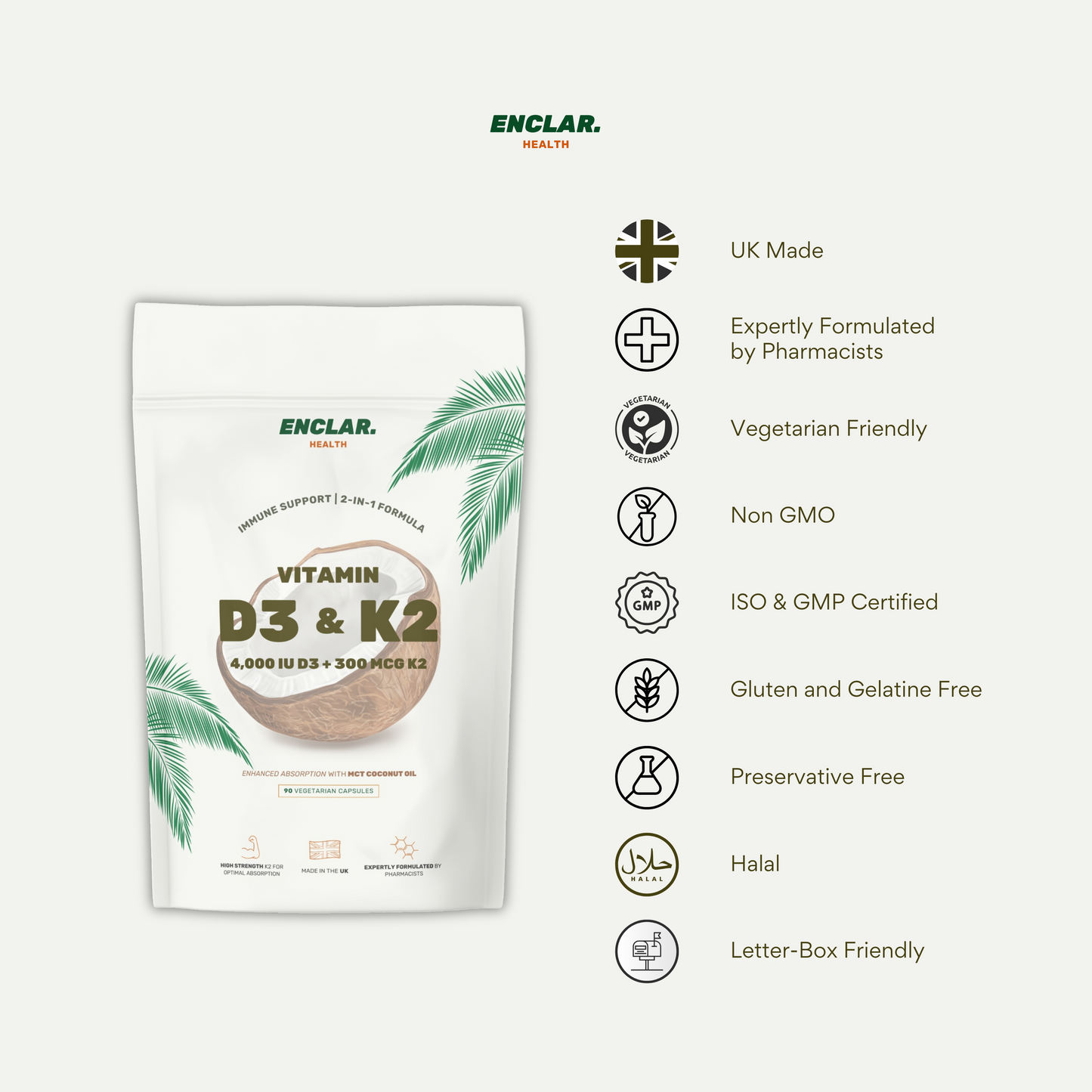
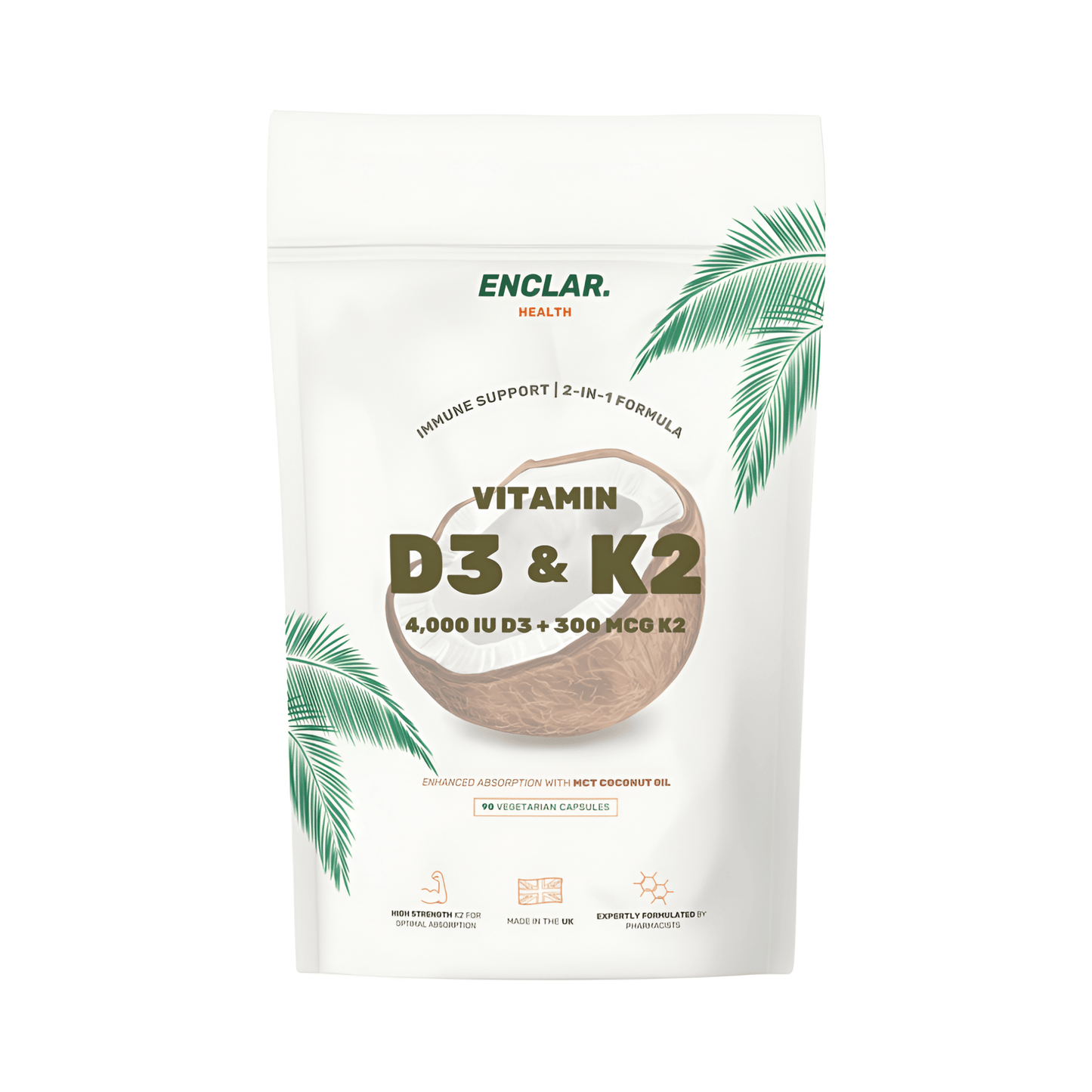

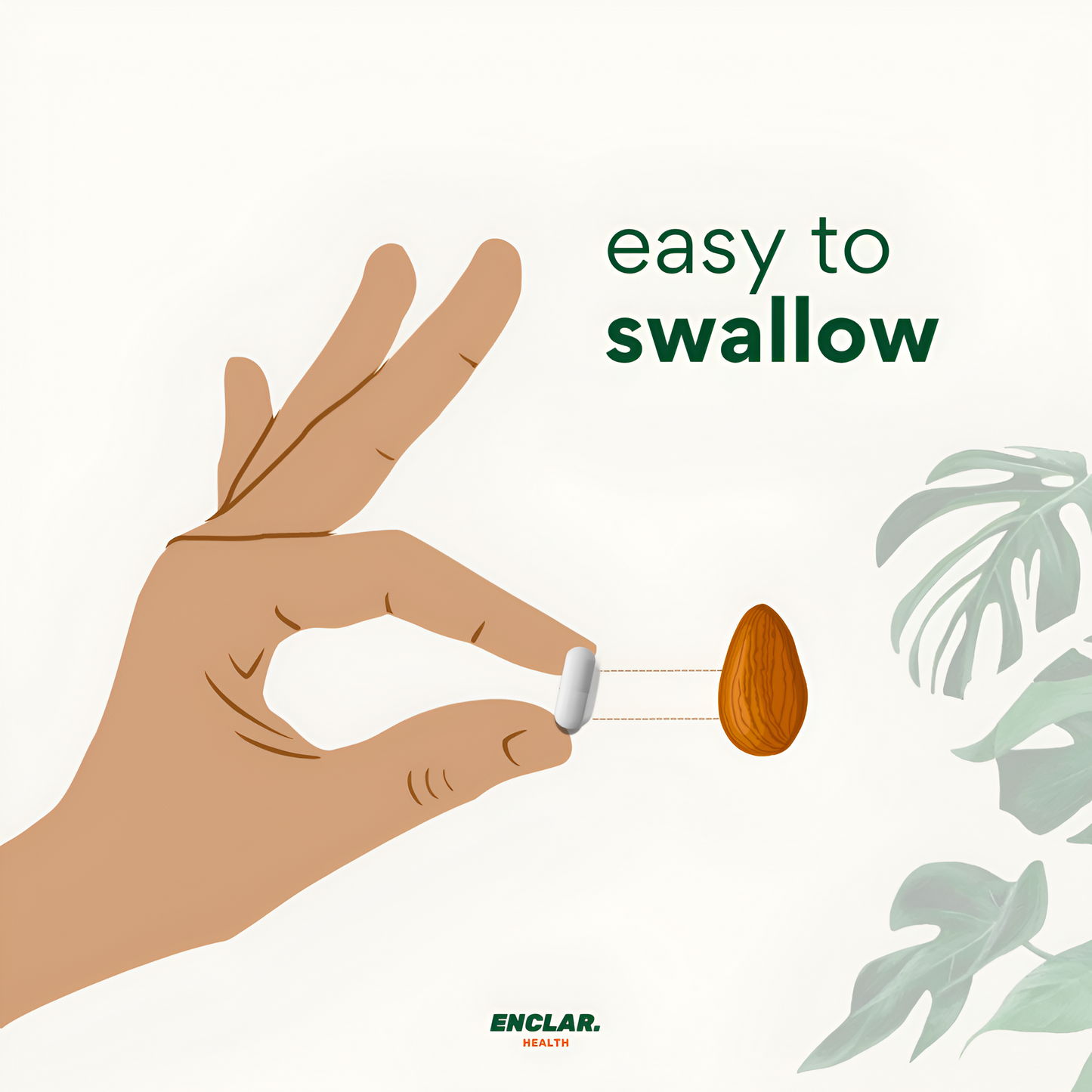
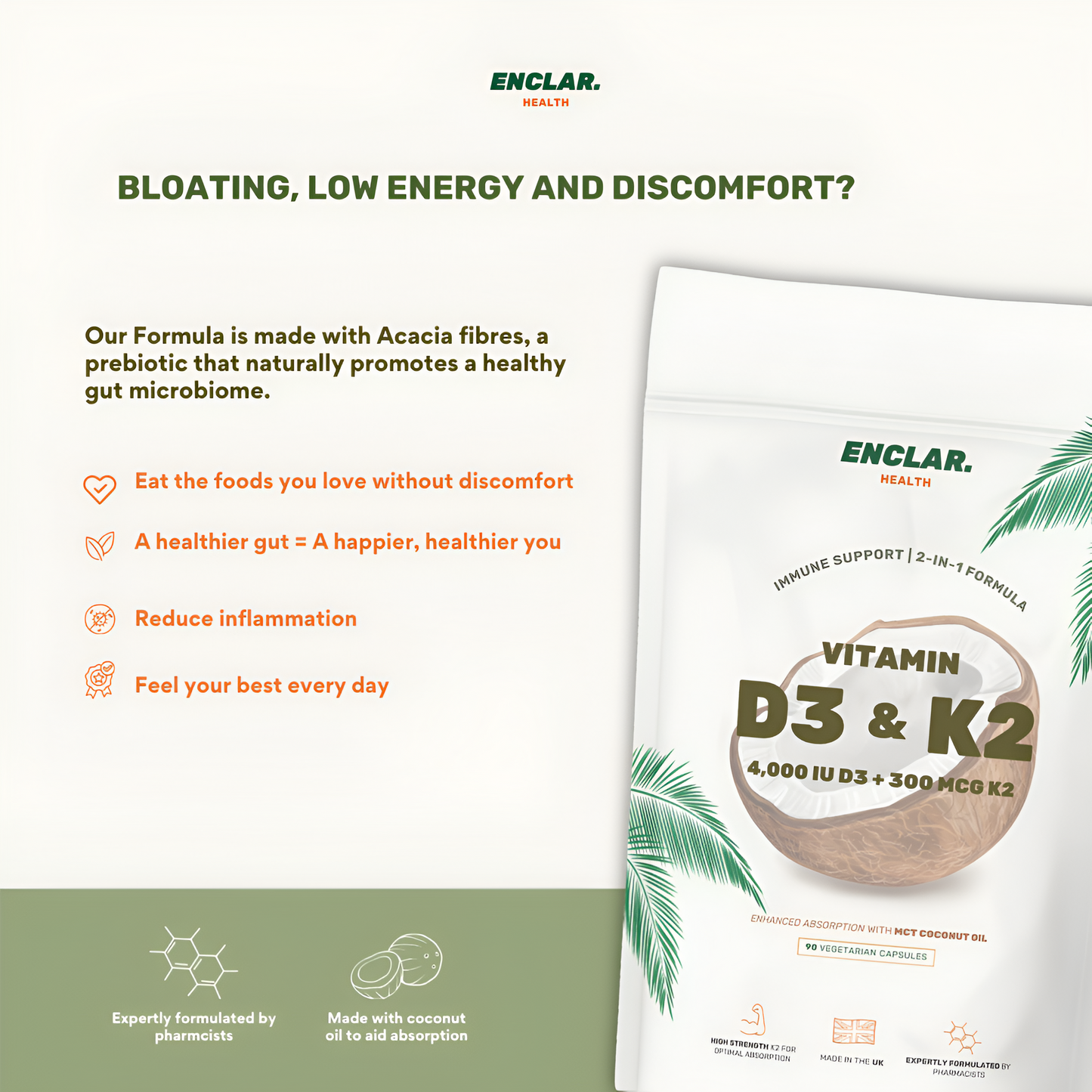
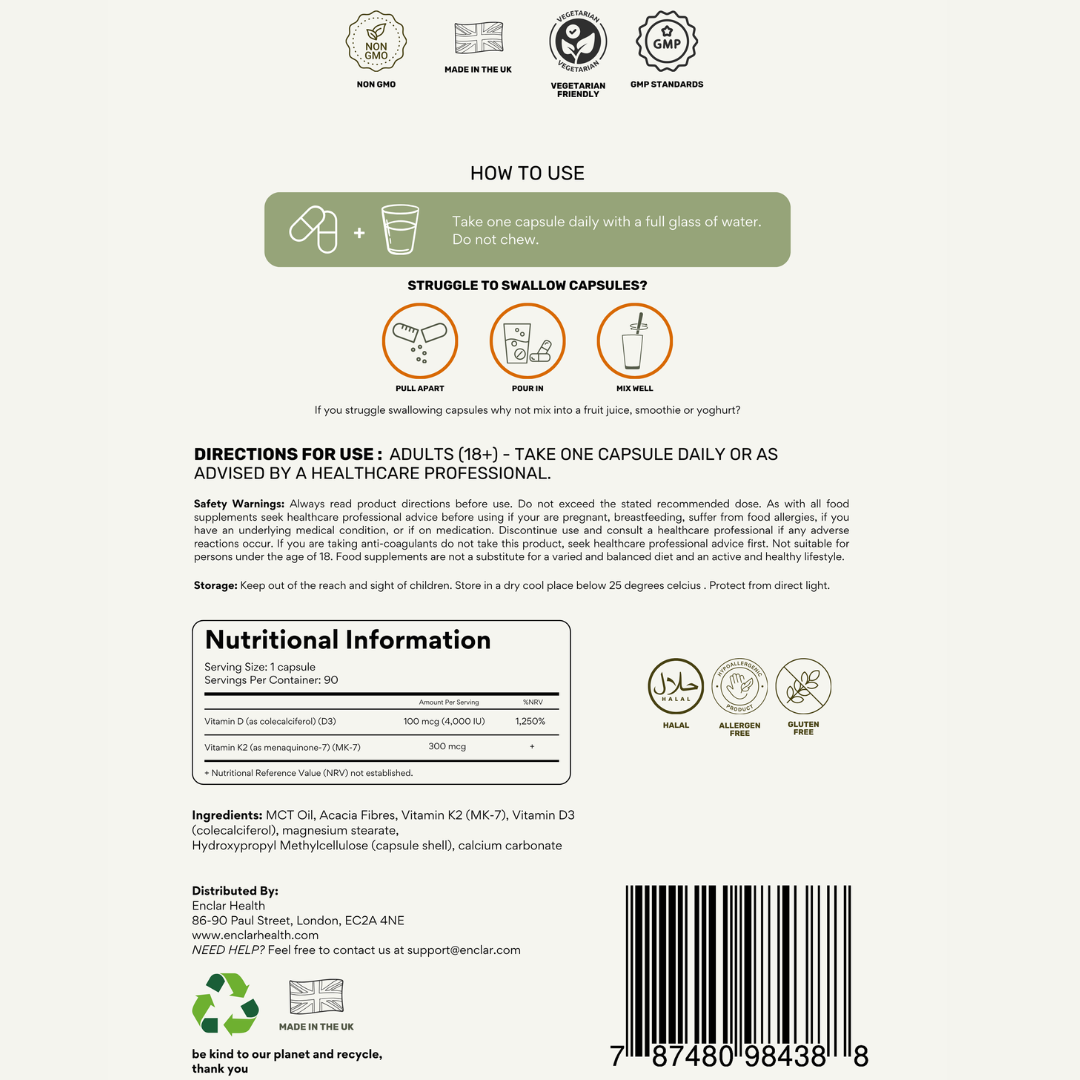
Real People, Real Results

Promotes Calm & Clarity
Reduce stress, anxiety, brain fog & fatigue.

Helps Maintain Energy Levels
Say goodbye to energy crashes in the afternoon.

Supports Restful Sleep
Wake up feeling refreshed and the best version of yourself.

Helps Manage Cravings
Help restore dopamine balance and calm down your cravings.

Promotes Calm & Clarity
Reduce stress, anxiety, brain fog & fatigue.

Helps Maintain Energy Levels
Say goodbye to energy crashes in the afternoon.

Supports Restful Sleep
Wake up feeling refreshed and the best version of yourself.

Helps Manage Cravings
Help restore dopamine balance and calm down your cravings.








